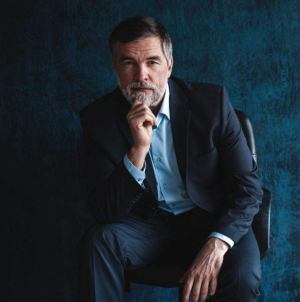
One Branded Retailer ’s Experience in 2020
Recently I have interviewed a number of retailers. All of them have interesting stories to tell about how Covid-19 transformed their businesses. None of them are willing to state their names. So we’ll handle these stories anonymously. Let’s begin with a major branded retailer—a household name—selling billions of dollars of apparel to consumers worldwide. I spoke with their SVP for the direct-to-consumer business and here’s what he had to say.
Tell us about your role, please. What do you do?
We are a branded retailer in the top five in our industry, usually number 2 or 3 in our market place depending on the country of operation. We are a branded retailer, selling through brick and mortar stores and through three e-commerce platforms. I’m responsible for the direct-to-consumer business as opposed to the franchise or wholesaling operations. My direct reports include merchandising, product development, marketing, and e-commerce teams.
How did Covid-19 impact your branded retailer operations in March or April 2020?
On the demand side, obviously, we had to close hundreds of stores and furlough thousands of employees. Next, we digitized hundreds of other team members to enable them to work from home. Beyond our IT organization, we actually deputized tech-savvy colleagues to support the preparation of laptops. We had the entire organization up and running within about four weeks as I recall. We moved to MS Teams and virtual meetings essentially overnight and a little bit later migrated to Salesforce Commerce Cloud for our e-commerce operations.
So sales from our stores obviously disappeared overnight. Millions of units of inventory were stuck at the border all over the world and we had to claw that inventory back to whatever distribution center we could, essentially quadrupling our inventory, which turned out to be a good thing, because we also managed an aggressive pivot to digital marketing and within three months we had an online business that equaled our pre-lockdown revenue, so all that inventory came in really handy.
As stores slowly reopened, our focus was on providing a safe environment for our associates and customers, so we emptied a lot of fixtures to make space for social distancing, and we were one of the first to put a non-nonsense masking rule in place. We supplied masks if the customer did not have one, but we also refused entry to those not willing to wear masks—to protect our own people.
There were numerous lawsuits, too, especially from employees who did not want to come back to physical meetings or roles, and it will take some time to sort these out.
How do you see the situation stabilizing now, 11 months on from the first impacts?
Well, customers’ habits have changed. Guys and ladies who would never have bought on line have learned to do so. We think much of that is a permanent change. The role of brick and mortar stores is different, too, as a result, being more of a showcase for our merchandise and a marketing or even awareness tool. We are opening far fewer branded retailer stores per year now, and even closing stores—something we almost never did before Covid-19.
As a result, we spend a considerable amount of energy renegotiating retail leases and are sorry to see the impacts on malls across the US and beyond as traffic has plummeted, but our focus is, of course, on growing our brand and our business. We have to go where the customers are.
How have your branded retailer staffing demands changed in the face of Covid-19?
On the front line, we used to have perhaps 90% of the in-store personnel focused on serving walk-ins. Brick and mortar sales vary by store but are down 10-30% versus the pre-Covid-19 period. So the mix has definitely changed now; with far fewer in-store sales we simply need less personnel, and the personnel we do need in more focused on optimizing the local marketing effectiveness of the store, particularly at the store manager level.
In the branded retailer management and back office area, we obviously seek people with digital marketing experience. Where we used to evaluate in-store traffic and merchandise trends, now we have created data analytics teams to filter the reams of digital data we receive to power insights and support predictions.
Managing inventory has changed tremendously, too. Our whole industry is very dependent on being able to move bulk merchandise at the various ports of entry. Today that is a slower and more tedious process. The port capacity has fallen by 40% in some places. Therefore, supply chains are slower. We need to order seven or eight months ahead now instead of four or five and that means risk. If the consumer trends change, you can get stuck with a lot of inventory, so we stock less. You probably see this across the entire retail industry—more out of stocks— because retailers do not want to end up sitting on slow-movers.
What kinds of transferrable skills are you looking for then when you hire?
At a minimum everyone needs basic computer skills, Excel, Word, etc. Without these skills, how can we expect people to manage Salesforce Commerce Cloud, for example? Digital experience is absolutely key, but we also like to make sure that our managers and executives have brick and mortar skills. Interestingly, lately I’ve been turning away candidates who have only digital skills for this reason.
Our branded retailer team members really need to work independently, be self-starters, and highly responsible. And some workflows are quite different. For example we used to have a product development team work as a team on a whole merchandise line of perhaps 100 or more SKUs, but now we break that down into smaller doses, for example, asking each developer to produce just 20 SKUs with interesting implications for the coherency of the whole line.
Personally, I used to write notes on pictures or samples or ad copy and hand it to assistants, but today I photograph whatever it is I’ve reviewed, hand-written notes and all, and send it to my colleagues via MS Teams—and that works pretty well.
Please share a personal anecdote about your career that can help potential career changers take heart in the face of all the challenges they currently face.
It sounds simplistic, but my strategy was always to work harder than everyone else to get ahead. That meant, for example, that I never said no when someone offered me an opportunity or a challenge. As a result, back in 1999 I took on a very early role in e-commerce and added that to my skill set when it wasn’t very common. Ever since then, my last several roles have been based on my advantage in having more e-commerce experience than any comparable candidates—in addition to plenty of brick and mortar scars.
Other than that, I can only suggest that you seek out a partner in life who can support you and be supported by you, because it’s hard to be effective at work if you don’t have a solid foundation at home. In that respect, we have been really blessed.
Peter Irish
CEO
The Barrett Group













